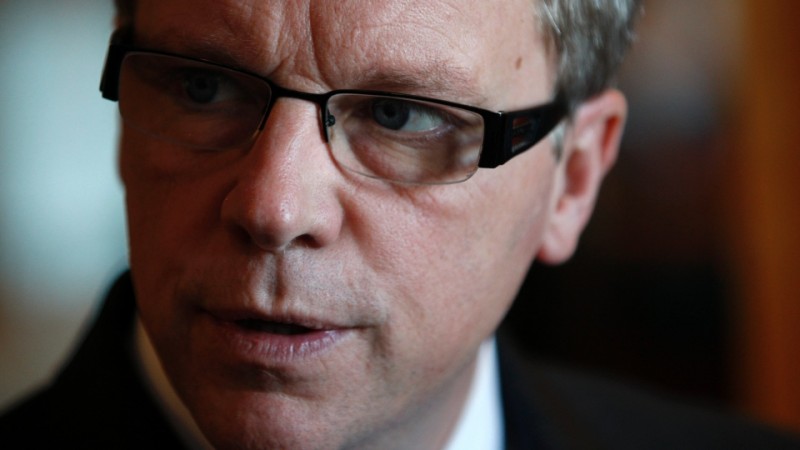
REGINA – Saskatchewan Premier Brad Wall says the federal government should consider cutting money intended to help developing countries tackle climate change and using it for research in Canada that could reduce global emissions.
Wall wants to see the $2.6 billion Ottawa has earmarked for developing countries added to an existing $2-billion federal low-carbon economy trust.
The premier says Saskatchewan has already laid the groundwork with a $1.5-billion carbon-capture facility to reduce greenhouse gas emissions at a coal-fired power plant.
“Let’s develop the technology. We can do that here in Canada,” Wall said Tuesday after releasing a policy proposal on climate change.
“We would be better to focus on developing the technologies here, where we already have those capacities, and make them available to the Third World.”
Wall pointed to a report released last December at the Paris climate-change summit which said there are more than 2,400 coal-fired plants planned or under construction globally. Developing technology that can be used anywhere to reduce emissions “is the logical response if we actually want to solve the problem,” he said.
But Keith Stewart of Greenpeace Canada says research shows carbon capture and storage is one of the most expensive ways to reduce emissions “and the only people who really like it are coal companies.”
“Brad Wall is basically proposing to take action on climate change in the most expensive way possible,” Stewart said in an interview.
“That is not conservative. That’s not good for taxpayers. That’s not good for people who are going to have to live with the impacts of climate change.”
Stewart adds that Wall’s proposal to cut money from developing countries “is a slap in the face” to anyone who wants a constructive debate on fighting climate change.
Wall has repeatedly criticized Prime Minister Justin Trudeau’s plan to charge $10 per tonne of carbon starting in 2018 and increasing to $50 by 2022. He says a carbon tax would hurt the backbone of the province’s economy — energy, mining and agriculture — while having the least impact on reducing emissions.
“What then are we prepared to risk for bromides and slogans and international cheerleading,” said Wall.
The Pembina Institute, which does research on climate change and other energy issues, called Wall “out of step with economists and business leaders” who it said support carbon pricing.
“In reality, an economy-wide carbon price is a critical tool for Saskatchewan — and for Canada — to support private-sector innovation and low-carbon economic development,” Erin Flanagan, the institute’s director of federal policy, said in a statement.
But the Canadian Taxpayers Federation backs Wall, saying that a carbon tax doesn’t work and hasn’t reduced emissions in British Columbia.
“We’ve got to look for better ways,” said Todd MacKay, the federation’s prairie director.
“Now we still have to evaluate those better ways and make sure that they’re actually worthwhile and will work, but every moment that we spend working on a carbon tax and putting resources into a carbon tax is a moment that we’re not moving forward and helping the environment.”
The policy paper calls for Saskatchewan to work with the federal government to further develop carbon-capture technology.
It repeats the government’s already-stated goal of having half of Saskatchewan’s power come from renewable sources such as wind and solar by 2030.
The paper also says nuclear power is an essential part of the world’s future energy mix and urges the federal government to take a leading role in developing a small reactor that could be used in Canada and around the world.
Wall says that’s part of the answer because it has zero emissions.
Public Safety Minister Ralph Goodale, the lone Liberal member of Parliament from Saskatchewan, said the policy paper is useful in the climate-change discussion.
“As to whether or not this plan would actually get Saskatchewan to where it needs to be in terms of the issue of carbon emissions, we just don’t have enough detail yet to say,” Goodale said in Ottawa.
“But we’ll look very carefully at what the premier has had to say and continue to make a number of very critical points under any arrangement we can expect to pollution pricing.”